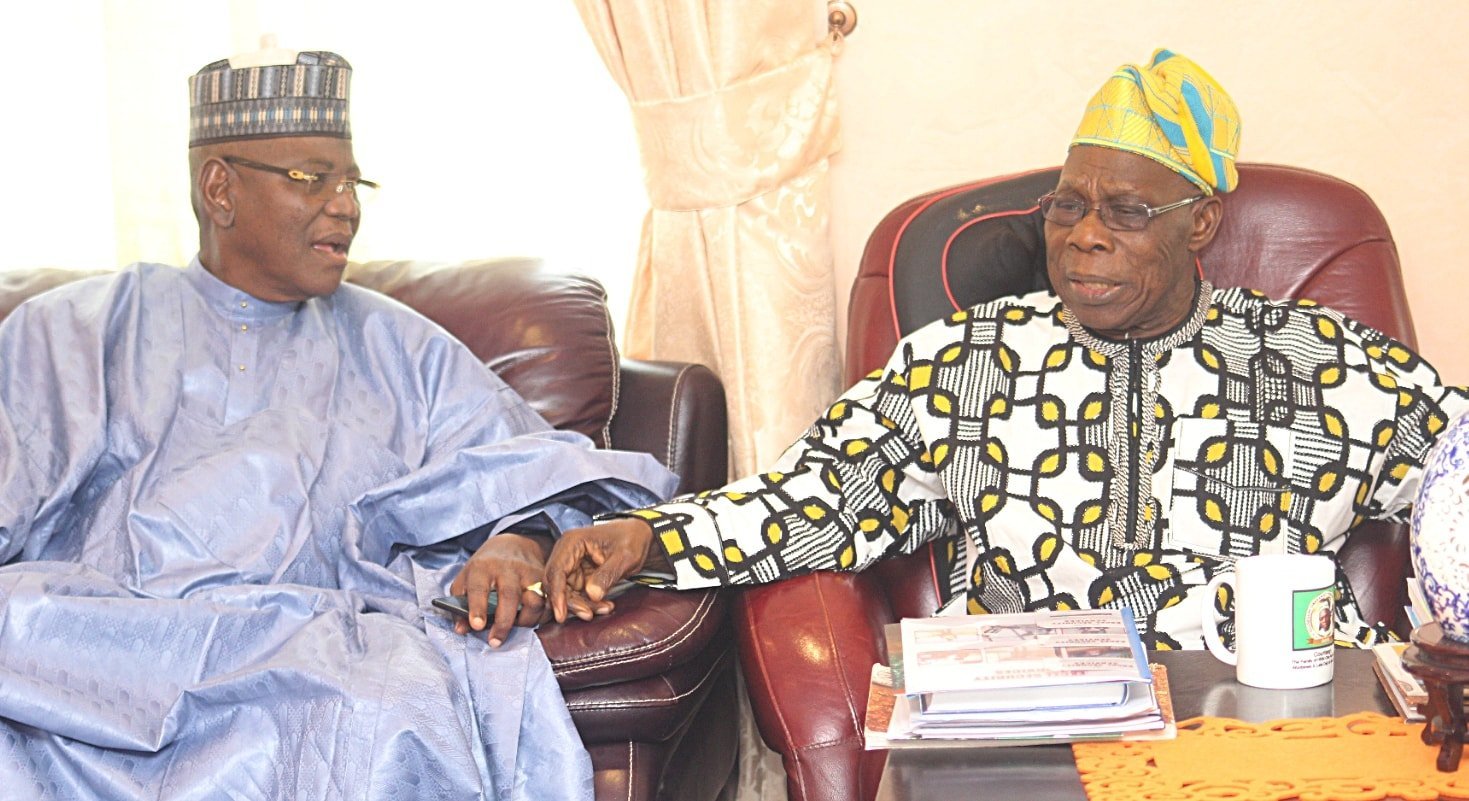Politics
Why Obasanjo was chosen over Ige, Falae, Adesanya in 1999 – Sule Lamido

Former Jigawa State Governor and ex-National Secretary of the now-defunct Social Democratic Party (SDP), Sule Lamido, has shed light on the political considerations that led to the selection of Olusegun Obasanjo as Nigeria’s presidential candidate in 1999 over other prominent Yoruba leaders like Bola Ige, Olu Falae, and Abraham Adesanya.
In his newly launched autobiography Being True to Myself, released on May 13, Lamido offers a candid account of Nigeria’s transitional politics following military rule. In Chapter 9, titled Abdulsalami’s Transition and Formation of the PDP, he reveals that the decision to back Obasanjo was rooted in a broader vision for national unity.
According to Lamido, while Ige, Falae, and Adesanya were respected Yoruba leaders, they were not perceived as figures who could effectively unify the nation or rise above ethnic sentiments. He explained that the political climate at the time demanded a Yoruba leader who could be embraced by Nigerians across ethnic and regional lines someone with a national appeal.
Lamido stated, “The effort then was to support Obasanjo, as the presidential contestant in the PDP. The Yoruba saw through our moves and wanted to ask to be given the choice to nominate one of three possible persons: Chiefs Olu Falae, Bola Ige, or Abraham Adesanya, but none of these could make a fair and effective president in Nigeria.
READ ALSO: ‘We are not done yet’ says Obasanjo as ex-President, Atiku, Obi, others meet in Abuja event
“We wanted to find a Yoruba Nigerian President; thus, to have a Yoruba man as the Nigerian President, not a president of the Nigerian Yoruba. Some people may today find this funny, but for us, the distinction was quite important at that time. However, we thought that Obasanjo could effectively function as a Yoruba Nigerian President and not president of the Nigerian Yoruba.
“So many aspirants had emerged in the party, including Alex Ekwueme, Abubakar Rimi, Obasanjo and others. The retired generals in the PDP advised that we should focus on Obasanjo for several reasons. The first of which was that he had won the trust of many Nigerians. Secondly, from among the Yoruba people, he had the profile of a prominent Nigerian.
“Under General Murtala Muhammed’s government, he occupied the position of Chief of Staff, Supreme Headquarters, more like a military prime minister, and he ruled the country immediately after Murtala.
The former Jigawa governor said Obasanjo was favoured for his integrity in 1979, also because he upheld Shehu Shagari’s victory despite the pressure from his fellow Yoruba to support his tribesman, Chief Awolowo, and declare him the winner.
Lamido continued, “General Obasanjo, being the Head of the Military Government, simply took the right action by upholding the results of the elections. This came after Chief Awolowo appealed his case, through the judicial system up to the Supreme Court, which upheld the verdict of the Federal Electoral Commission, certified under Mr Ovie Whiskey.
“Giving a Yoruba man the presidential slot was to affirm Obasanjo’s nationalist credentials: he fought the Nigerian civil war and accepted the instrument of surrender from the rebels of Biafra; in the administration of the country, he had worked as deputy to the late General Murtala Mohammed.
“However, he was not the typical Nigerian politician, with his bluntness and. I think the choice of Obasanjo, over their favoured candidates, angered the Yoruba, from their political elite at the top, down to the masses.
“His decision to disregard the raging dispute concerning the interpretation of the twelve and two-thirds victory, the NPN scored in the 1978 election, and hand over power to a non-Yoruba was to them his original sin; the second was that he had compounded this ‘offence’ when he refused to support Chief MKO Abiola’s struggle to reclaim the mandate of the 12th June presidential election.
“Obasanjo and Abiola were both from Abeokuta, but they had been bitter opponents, divided by their individual temperament, ideology, and religion, amongst other notable differences.”





















